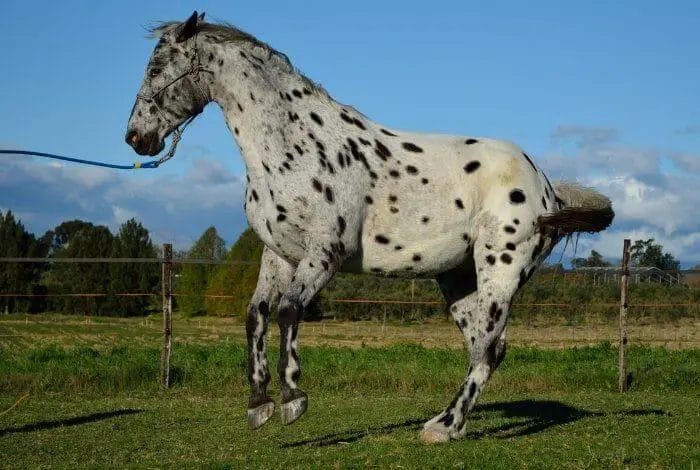Wondering how much it costs to geld a horse? Gelding, the process of castrating male horses, is a common procedure performed by equine veterinarians. The cost of horse gelding can vary depending on factors such as location, vet fees, and the age and size of the horse. It is advised to consult with a reputable veterinarian in your area to get an accurate estimate for the cost of gelding your horse.
Gelding a horse is a routine procedure that offers several benefits, including reducing stallion behavior, improving temperament, and preventing unwanted breeding. While the cost may vary, it is an investment that contributes to the overall well-being and manageability of your horse.
When considering the cost of gelding a horse, it is important to factor in not only the initial surgical expenses but also any additional costs associated with anesthesia, post-operative care, and follow-up visits. Consulting with your veterinarian will provide a clear understanding of the overall cost and ensure the best care for your horse throughout the process.

Factors that influence the cost of horse gelding
Having a horse gelded can be a significant decision for horse owners. Gelding, or castration, is the surgical removal of a male horse’s testicles, making them unable to reproduce. There are several factors that can influence the cost of horse gelding, and it’s important for horse owners to be aware of these factors when considering this procedure.
1. Geographic Location
The cost of horse gelding can vary depending on the geographic location. Prices may be higher in urban areas or areas where there is a high demand for equine services. Conversely, prices may be lower in rural areas where there is less competition and lower overhead costs for veterinarians.
2. Age of the Horse
The age of the horse can also impact the cost of gelding. It is generally recommended to geld horses at a young age, as the procedure is simpler and has a quicker recovery time. Older horses may require more extensive surgery and post-operative care, which can increase the cost.
3. Breed and Size of the Horse
The breed and size of the horse can also play a role in the cost of gelding. Larger horses may require more anesthesia and surgical time, which can increase the cost. Additionally, certain breeds may have unique considerations or require specialized equipment, which can affect the overall cost of the procedure.
4. Veterinary Fees
The fees charged by the veterinarian performing the procedure can vary. Factors such as the experience and reputation of the veterinarian, as well as the clinic’s overhead costs, can influence the fees. It’s important to research and compare prices from different veterinarians to ensure a fair and reasonable cost.
5. Additional Services
There may be additional services or treatments required before or after the gelding procedure, which can increase the overall cost. This can include pre-operative bloodwork, post-operative medications, or follow-up visits to monitor the horse’s recovery. It’s important to discuss these potential additional costs with the veterinarian beforehand.
6. Time of Year
The time of year can also impact the cost of horse gelding. Some veterinarians may offer discounts or promotions during certain seasons, while prices may be higher during busy periods. It’s worth inquiring about any seasonal specials or discounts that may be available.
7. Individual Circumstances
Finally, individual circumstances can affect the overall cost. For example, if a horse has any pre-existing health conditions, complications during the procedure, or requires specialized care, the cost may be higher. It’s important to communicate openly with the veterinarian about any specific circumstances that may impact the cost.
Summary
The cost of horse gelding can vary depending on several factors, including geographic location, age of the horse, breed and size of the horse, veterinary fees, additional services, time of year, and individual circumstances. It’s important for horse owners to research and gather information from different sources to make an informed decision and ensure the best care for their horses.

Cost Comparison of Horse Gelding by Different Veterinarians
When it comes to getting your horse gelded, it is important to consider the cost involved. Different veterinarians may charge varying prices for this procedure, so it is worth doing a cost comparison to ensure you are getting the best value for your money.
Why Gelding?
Gelding is a common procedure for male horses that involves the removal of their testicles. It is primarily done to control behavior, prevent unwanted breeding, and make the horse more manageable and suitable for various equestrian activities.
Factors Affecting Cost
The cost of horse gelding can vary depending on several factors:
- Type of Veterinarian: Equine veterinarians who specialize in horses may charge higher fees compared to general practice veterinarians.
- Experience and Reputation: Veterinarians with extensive experience and a good reputation may charge more for their services.
- Location: The cost of horse care can vary depending on the geographic location. Urban areas and regions with a higher cost of living may have higher fees.
- Additional Services: Some veterinarians may include additional services as part of their package, such as pre-operative examinations, post-operative care, and follow-up visits. These services can impact the overall cost.
Cost Comparison Table
| Veterinarian | Cost of Gelding | Additional Services Included | Location |
|---|---|---|---|
| Vet A | $500 | Pre-op exam, post-op care | Rural |
| Vet B | $600 | Post-op care, follow-up visits | Suburban |
| Vet C | $400 | Pre-op exam, post-op care, follow-up visits | Urban |
Comparing Costs
Based on the cost comparison table above, it is evident that the cost of horse gelding can vary significantly. Vet A charges $500 and includes a pre-operative examination and post-operative care. This may be a good option for horse owners in rural areas.
Vet B, on the other hand, charges $600 but includes post-operative care and follow-up visits. This comprehensive package may be more suitable for horse owners in suburban areas.
Vet C offers the lowest cost at $400 and includes a pre-operative examination, post-operative care, and follow-up visits. This might be an attractive option for horse owners in urban locations.
Considerations
While cost is an important factor, it is essential to assess the overall quality of veterinary services, including the veterinarian’s expertise and the level of care provided. It is recommended to consult with each veterinarian, ask for references or testimonials, and discuss any concerns or questions you may have before making a decision.
In Summary
When considering horse gelding, it is crucial to compare costs among different veterinarians. Factors such as the type of veterinarian, experience, location, and additional services provided can influence the overall cost. By assessing these factors and considering the specific needs of your horse, you can make an informed decision and choose the veterinarian that offers the best value for your money.

Tips for finding affordable horse gelding services
When it comes to finding affordable horse gelding services, there are several factors to consider. Gelding, which refers to the process of removing a horse’s testicles, is a common procedure performed for various reasons, including behavioral management, preventing breeding, and improving the horse’s overall temperament. While the cost of horse gelding can vary depending on factors such as location and the specific services included, there are some tips that can help you find affordable options without compromising on quality.
1. Research and compare prices
The first step in finding affordable horse gelding services is to thoroughly research and compare prices from different veterinarians or equine clinics in your area. Take the time to contact multiple providers and inquire about their fees for the procedure. Keep in mind that the cost may vary based on the horse’s age, size, and any additional services required, such as sedation or post-operative care. By comparing prices, you can get a better understanding of the average cost range and identify potential cost-saving options.
2. Seek recommendations and referrals
Reach out to fellow horse owners, trainers, or local equestrian communities for recommendations and referrals. Word-of-mouth is often a reliable way to find affordable and reputable service providers. Ask about their experiences, the quality of care their horses received, and if they found the services to be reasonably priced. This can help you narrow down your options and find providers who offer both affordability and quality.
3. Consider group rates or discounts
Some veterinarians or equine clinics may offer group rates or discounts for multiple horses being gelded at the same time. If you have multiple horses requiring the procedure, inquire about any potential cost savings that may be available. Group rates can significantly reduce the overall cost per horse, making it a more affordable option.
4. Look for clinics or organizations offering subsidized services
In some cases, there may be clinics or organizations that offer subsidized or discounted horse gelding services for certain circumstances. These programs are often aimed at promoting responsible horse ownership and population control. Research if there are any such initiatives in your area and determine if you qualify for their services. This can be a great way to access affordable horse gelding services while supporting a good cause.
5. Discuss payment plans or financing options
If the upfront cost of horse gelding is a concern, consider discussing payment plans or financing options with the service provider. Some clinics may offer flexible payment arrangements, allowing you to spread out the cost over a period of time. This can make the procedure more manageable and affordable, particularly if you are on a tight budget.
6. Don’t compromise on quality
While finding affordable horse gelding services is important, it is crucial not to compromise on the quality of care provided to your horse. Ensure that the service provider is experienced, licensed, and has a good reputation in the industry. Gelding is a surgical procedure, and it is vital to have it performed by a qualified professional to minimize any potential risks or complications.
Summary
When searching for affordable horse gelding services, it is essential to thoroughly research and compare prices, seek recommendations from trusted sources, consider group rates or discounted options, explore subsidized programs, discuss payment plans or financing options, and prioritize the quality of care provided. By following these tips, you can find affordable options without compromising the well-being of your horse.
Understanding the Long-Term Savings of Horse Gelding
Gelding is a common practice in the horse industry that involves the castration of male horses. While this procedure may seem drastic, it offers numerous benefits for both horse owners and the animals themselves. One of the significant advantages of horse gelding is the long-term savings it can provide. In this section, we will delve into the various ways in which horse gelding can lead to financial gains for owners.
1. Reduced Healthcare Costs
By choosing to geld their horses, owners can significantly reduce their long-term healthcare costs. Stallions, or intact male horses, are more prone to certain health issues, such as testicular cancer, aggression, and unwanted breeding behaviors. These conditions often require expensive medical treatments and can quickly drain a horse owner’s budget. Gelding eliminates the risk of these problems, resulting in fewer veterinary visits and lower healthcare expenses.
2. Decreased Maintenance Expenses
Intact male horses tend to have more challenging personalities and require specialized handling. They can be aggressive towards other horses and exhibit dominant behaviors. This can necessitate the need for separate stalls, fencing, and increased supervision, all of which come with additional costs. Gelding can help temper these aggressive tendencies, making the horses easier to handle and reducing the need for extra facilities and equipment.
3. Enhanced Training Opportunities
Gelding can also enhance the training potential of male horses. Intact males often exhibit behaviors associated with hormonal fluctuations, such as mounting, aggression, and distractibility. These behaviors can make training more challenging and time-consuming. By gelding a horse, owners can eliminate these distractions and improve the horse’s focus, making the training process more efficient and cost-effective.
4. Improved Compatibility
Intact male horses can be difficult to keep in a herd setting as they are prone to aggressive and territorial behavior. This can result in injuries for both the horse and other animals. Gelding a horse can help improve their compatibility with other horses, reducing the risk of conflicts and promoting a harmonious herd environment. This not only contributes to the horse’s overall well-being but also minimizes the potential expenses associated with injuries and veterinary care.
5. Extended Riding Life
Lastly, horse gelding can extend the riding life of the animal. Stallions often exhibit behaviors that can make them unsuitable for certain disciplines or riding situations, such as breeding-focused behaviors or excessive aggression towards other horses. By gelding a horse, owners can increase its suitability for various equestrian activities, allowing them to enjoy the horse’s companionship and rideability for a more extended period.
In summary, while horse gelding may be an upfront expense, it offers significant long-term savings for owners. From reduced healthcare costs and decreased maintenance expenses to improved training opportunities, enhanced compatibility, and an extended riding life, gelding provides multiple financial benefits. Additionally, it contributes to the overall well-being and behavior of the horse, making it a worthwhile investment for horse owners.
FAQs
How much does it cost to geld a horse?
The cost to geld a horse can vary depending on factors such as location, veterinarian fees, and any additional services required. On average, the cost of castrating a horse can range from $200 to $800.
Conclusion:
In conclusion, the cost to geld a horse can vary depending on various factors. It is important to consider the expenses involved in the procedure, such as the anesthesia, surgical equipment, and the expertise of the veterinarian. Additionally, location and the overall health of the horse can also influence the cost. While the average cost for gelding a horse ranges between $200 to $600, it is recommended to consult with a veterinarian to get an accurate estimate based on individual circumstances. Gelding a horse is a significant investment that can contribute to the horse’s well-being and long-term management.
Gelding a horse not only helps in preventing unwanted breeding but also provides behavioral and health benefits. Although the procedure may involve some expenses, it is considered a worthwhile investment in the long run. By consulting with an experienced veterinarian and considering the specific needs of your horse, you can determine the most appropriate cost for gelding. Remember to take into account any additional costs, such as post-operative care and follow-up visits. Ultimately, gelding your horse is a responsible decision that can positively impact its health, behavior, and overall quality of life.
